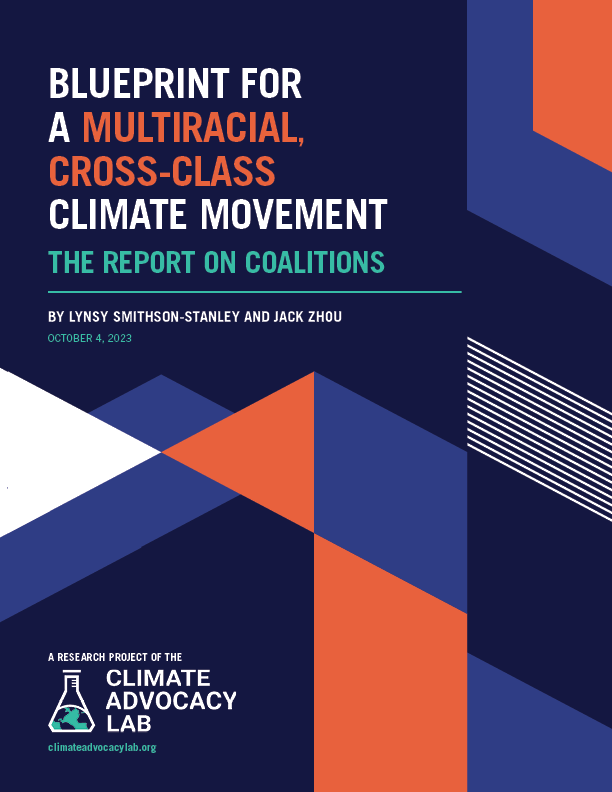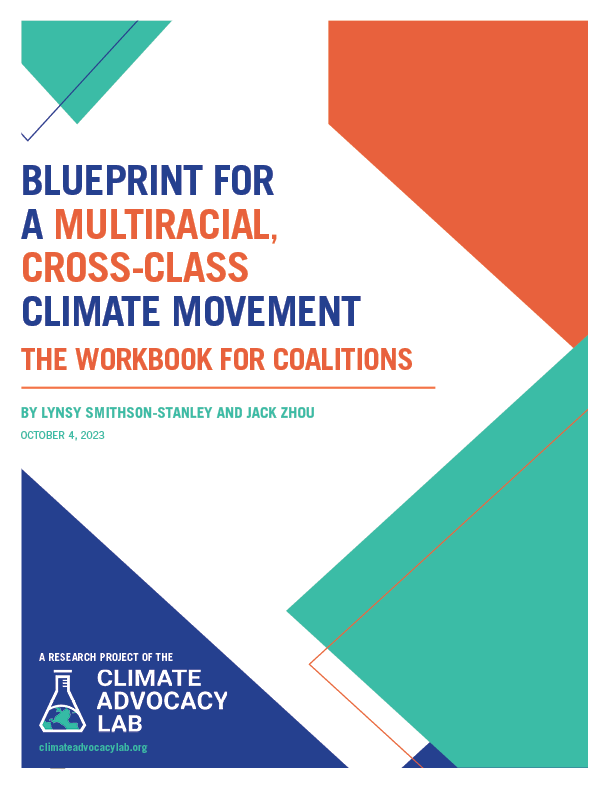Why do some coalitions for climate action seem to work well while others fall apart? What does it mean for a coalition to produce not only successful outcomes but operate via healthy processes? And how can traditional environmental organizations find not only common ground but common ways of working across sectors with environmental justice, labor, racial justice, and other types of advocates?
To answer these questions, the Climate Advocacy Lab has developed a Blueprint to analyze and break down how climate advocates can most effectively set up and work in the multiracial, cross-class (MRXC) coalitions that are essential to winning the intersectional policies needed to address the climate crisis. We intend for our "Blueprint for a MRXC Climate Movement" to help the U.S. climate community build more equitable, durable coalitions that are also more effective in delivering and wielding political power. While not all campaigns and coalitions can win, our hope is that they fall short only due to external circumstances and not due to miscommunication or a lack of attention to healthy internal process.
Our Blueprint is made up of two complementary pieces:
The Report on Coalitions presents our research findings from a combination of case study analysis and direct interviews with climate organizers and movement leaders. We start with a review of how various popular organizing models define the principles and components (i.e., “variables”) that lead to strong, powerful climate organizing, and identify them according to their purported necessity in successful coalition practices. These variables include considerations of resource-sharing, mutual accountability, strategic planning, conflict management, and internal flexibility. We then analyze how these variables show up in practice when looking at five recent cases of climate campaigns that we believe illustrate a breadth of outcomes and processes in MRXC climate coalitions: Illinois’ Climate and Equitable Jobs Act, the fight against the Line 3 pipeline in Minnesota, New York’s Community Leadership and Community Protection Act, the Portland Clean Energy Fund, and Washington state's I-1631 ballot initiative. We distill our findings into 19 recommendations that cover Building the Coalition, Ways to Work Together, Staying Aligned, and How to Keep Growing.
The Workbook for Coalitions takes those 19 recommendations and transforms them into specific and applicable discussion prompts for prospective and/or current coalition members to share with their collaborators. These conversation-starters dig deep into the underlying questions and processes that, based on our analysis, often make or break MRXC climate coalitions. By openly talking about these concepts – in the process surfacing peoples' opinions and making explicit their underlying assumptions – we believe that participants will be better prepared to structure their MRXC climate coalitions and overcome the external and internal barriers that may come their way.
These two documents will be supported through additional outreach opportunities like webinars, trainings, and other programming through the remainder of 2023 and early 2024.
Related programming
-
Watch the recording from our recent Launch event: Blueprint for a Multiracial, Cross-Class Climate Movement

